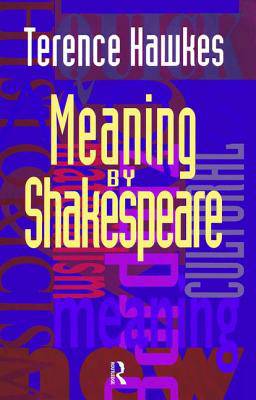
- Afhalen na 1 uur in een winkel met voorraad
- Gratis thuislevering in België vanaf € 30
- Ruim aanbod met 7 miljoen producten
- Afhalen na 1 uur in een winkel met voorraad
- Gratis thuislevering in België vanaf € 30
- Ruim aanbod met 7 miljoen producten
Zoeken
Omschrijving
We traditionally assume that the `meaning' of each of Shakespeares plays is bequeathed to it by the Bard. It is as if, to the information which used to be given in theatrical programmes, `Cigarettes by Abdullah, Costumes by Motley, Music by Mendelssohn', we should add `Meaning by Shakespeare'. These essays rest on a different, almost opposite, principle. Developing the arguments of the same author's That Shakespearean Rag (1986), they put the case that Shakespeare's plays have no essential meanings, but function as resources which we use to generate meaning. A Midsummer Night's Dream, Measure for Measure, Coriolanus and King Lear, amongst other plays, are examined as concrete instances of the covert process whereby, in the twentieth century, Shakespeare doesn't mean: we mean by Shakespeare. Meaning by Shakespeare concludes with `Bardbiz', a review of recent critical approaches to Shakespeare, which initiated a long-running debate (1990-1991) when it first appeared in The London Review of Books.
Specificaties
Betrokkenen
- Auteur(s):
- Uitgeverij:
Inhoud
- Aantal bladzijden:
- 192
- Taal:
- Engels
Eigenschappen
- Productcode (EAN):
- 9781138466975
- Verschijningsdatum:
- 11/09/2017
- Uitvoering:
- Hardcover
- Formaat:
- Genaaid
- Afmetingen:
- 138 mm x 216 mm
- Gewicht:
- 452 g

Alleen bij Standaard Boekhandel
+ 513 punten op je klantenkaart van Standaard Boekhandel
Beoordelingen
We publiceren alleen reviews die voldoen aan de voorwaarden voor reviews. Bekijk onze voorwaarden voor reviews.











